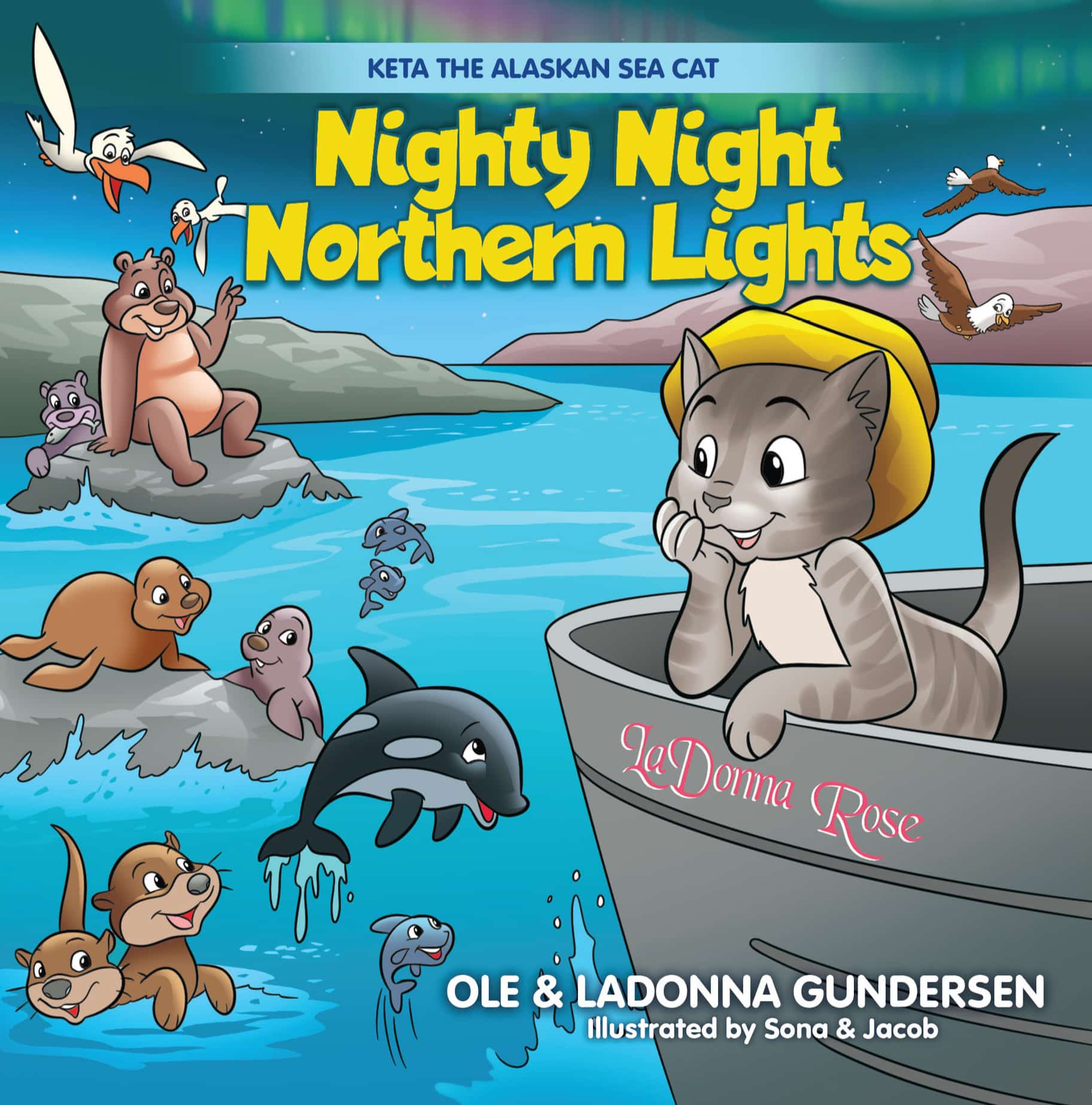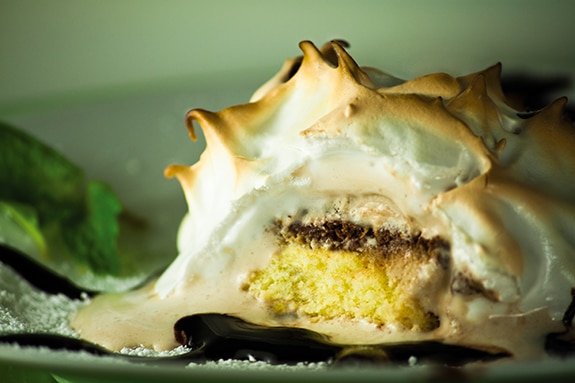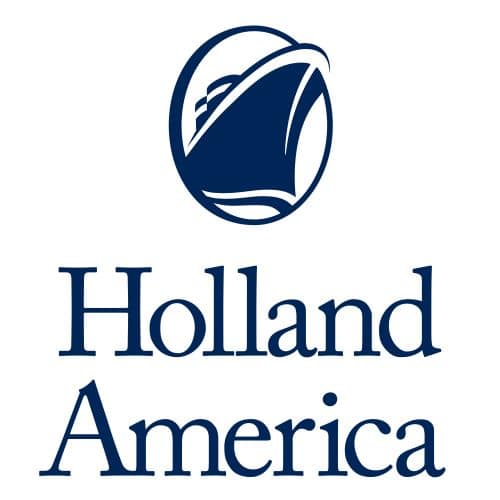On a trip to NYC this past Christmas, I was invited to be a guest on Martha Stewart Living Radio to talk about my new cookbook Salmon, Desserts & Friends. It was such a wonderful opportunity and I was over the top happy they wanted little ol’ me!

Eagerly waiting in the lobby of the Serious Satellite Radio Station with Ole and a dear friend of ours Laurel Lindahl, I was excited about sharing with the world the wonderful benefits of wild Alaska salmon. I wasn’t too worried about the interview, after all I have been catching, cooking and eating wild salmon for 24 years. Ole laughed saying “what could possibly go wrong in 30 minutes.”
I’m up! The producer led us down a long hall. On one side was windows from floor to ceiling and on the other side was individual studios. The view from the 39th floor over looked parts of the city and was amazing! I literally heard my heart pumping as the door opened into the studio. It was small and dark with two windows and lots of equipment. My interviewer Chris had his back into the corner of the room and I sat in a tall chair facing him. While on a break, they helped me with my headphones, chatted with me a little bit and made me feel very comfortable.

We went live on the radio!
Thumbing through his copy of my cookbook Salmon, Desserts & Friends, we started talking about different ways to prepare wild salmon and fishing in Alaska. The phone lines lit up rather quickly, I thought. A woman from Florida called in and expressed her love for wild salmon. She was completely aware of farmed Atlantic salmon and said she would never eat it. We had a wonderful visit and I shared with her one of my quick and easy recipes.

Easy Salmon and Cheddar Strata. Page 35
The phone lines were packed so we went on with the next caller. All wanting to know more about the differences between wild and farmed salmon.
Now, those of you that know me, know my passion for the subject and in fact could keep your ear for over an hour. All was going very well, and then Fred from Massachusetts called in… Fred said his fishmonger told him that farmed Atlantic salmon was far superior to wild Alaska salmon because of the fat content.
He asked me if that was true and if it was okay to eat farmed salmon.
Now remember, I’m on Martha Stewart Living Radio…easy to say a hundred thousand listeners? A million? I don’t know… but what I do know, it was one of the most important interviews of my life!
I asked Fred why his fishmonger would say such a thing? He said, “because they eat better.” I asked Fred if he was aware that farmed salmon are raised in crowded net pens and fed from a global supply of fish meal and fish oil manufactured from small open sea fish, which studies show are the source of PCB’s in most farmed salmon? (Which ultimately causes a loss to the worlds food supply because, it takes three times more protein to feed a farmed fish than a wild fish would ever eat). Fred seemed to be focused on wild salmon containing mercury and farmed salmon having more Omega 3’s.
I said Fred, farmed salmon are intentionally fattened and therefore accumulate more PCB’s, because the process of fattening them is similar to fattening cows or hogs in a feed lot. (To fatten up the farmed salmon, some farmers use bright lights at night to confuse the fish into always thinking it’s feeding time).
Farmed salmon are fattier because they are lazy and they don’t get any exercise, they are artificially colored with a dye, otherwise they would be an unappetizing grey. (Recent studies have shown this dye to adversely effect eye sight when consumed in large quantities).
I said Fred, there is so much disease in the farmed pens the farmers use antibiotics and other drugs that ultimately seep into the open waters. This is a serious concern, that drug resistant strains of disease can wipe out entire stocks of wild Pacific salmon.
Farmed salmon are stuffed together by the hundreds of thousands in net pens, these conditions provide the perfect banquet for sea lice.
Sea lice feed on the mucus, blood and skin of salmon. Understand more by watching this short video.
To combat this, the salmon farmers bathe the fish in toxic chemicals. Guess what? Sea lice are adapting to the chemicals used to control them. (These chemicals are being absorbed into the fish). Because the salmon farms are concentrated along wild Pacific salmon migration routes, the lice are transmitted to juvenile stages of wild salmon as they pass in numbers, killing them. That never would have happened naturally.
I said Fred, one thing no one ever thinks about and that is the waste from some large farms are estimated to equal sewage from a city of 10,000 people.
The waste flows straight into the ocean, causing disastrous plankton blooms, destroying shellfish beds and fouling nearby habitat.
Fred had no idea! I said Fred, we all need to do our own research and I encouraged him to do his own. I strongly encourage you to do your own research as well.
At first glance, fish farming may seem like a good idea, a way to ease the stress on the wild stocks and meet the food demands of the world population…but maybe not. It may seem like a bargain at your local grocer, but globally speaking, farmed salmon is anything but a bargain.
The first thing the next caller said was “I will never eat farmed salmon ever again!” She wanted to know how to tell the difference? I told her to get into the habit of asking.
Is the salmon farmed?

Or is the salmon wild?

If the label say’s wild Alaska you can have all the confidence in the world to know it’s wild, because there are no fish farms of any type in the state of Alaska.
I encourage everyone to do their own research and once you know what I know…You won’t let your friends eat farmed Atlantic salmon. While I am on the subject…lets not forget about Frankenfish!
Please for your health and the health of those you love, do your part for our sacred Wild Salmon ask if its farmed or if it’s wild.
Best Fishes!
LaDonna Rose
P.S. Here are a couple of great links for more information.
Alaska Seafood Marketing Institute on Sustainability http://sustainability.alaskaseafood.org/intro
Monterey Bay Aquarium on Seafood Sustainability: http://www.montereybayaquarium.org/cr/SeafoodWatch/web/sfw_factsheet.aspx?gid=49
Farmed and Dangerous: http://www.farmedanddangerous.org/salmon-farming-problems/
David Suzuki Foundation: http://www.davidsuzuki.org/issues/oceans/science/sustainable-fisheries-and-aquaculture/salmon-farming—a-grave-concern-a-great-hope/
Alaxandra Morton: http://alexandramorton.typepad.com/


 Follow me Facebook
Follow me Facebook Follow me Instagram
Follow me Instagram Follow me Pinterest
Follow me Pinterest




